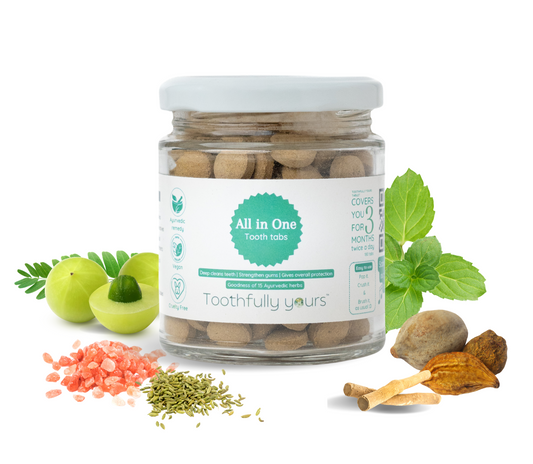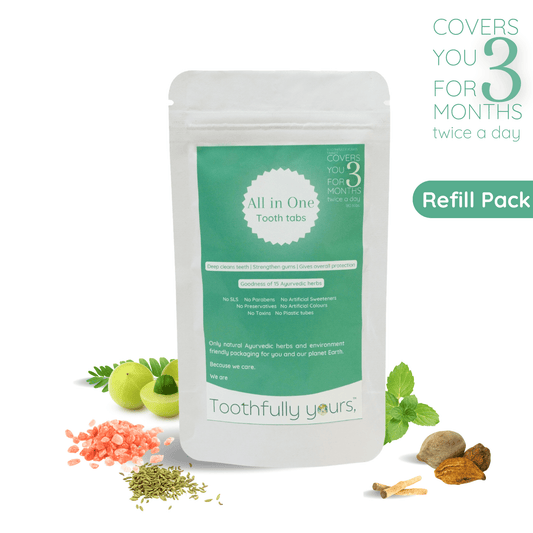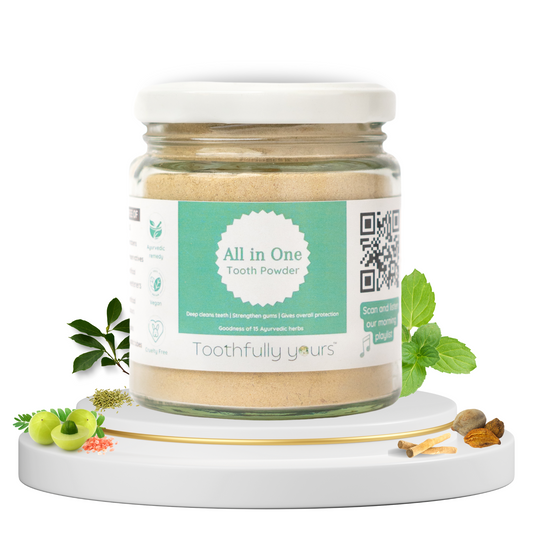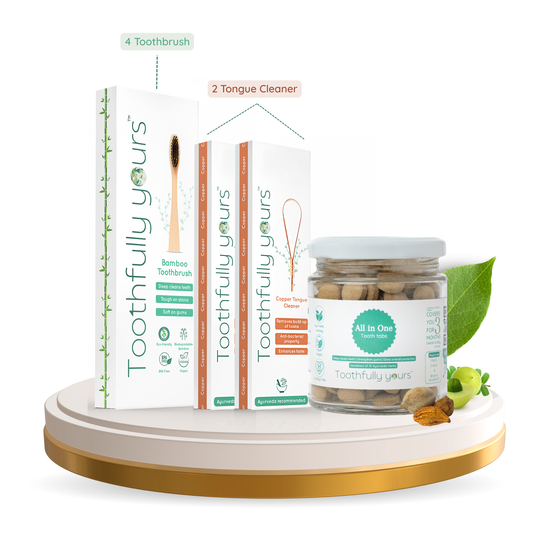
Tooth Cavity: Causes, Prevention, Care Tips, and Treatment Options
Tooth cavity, also known as dental caries or tooth decay, is a common oral health issue that affects people of all ages worldwide. In this blog post, we'll explore the causes of tooth cavities, effective prevention strategies, and practical care tips to maintain optimal oral health and prevent decay.
Causes of Tooth Cavity:
- Plaque accumulation: Plaque, a sticky film of bacteria that forms on the teeth, produces acids when exposed to sugars from food and drinks. These acids can gradually erode the enamel, leading to the formation of cavities.
- Poor oral hygiene: Inadequate brushing and flossing allow plaque and food particles to accumulate on the teeth, increasing the risk of decay. Failure to remove plaque regularly can lead to the development of cavities over time.
- High sugar and carbohydrate intake: Consuming sugary and starchy foods and beverages provides fuel for bacteria in the mouth to produce acids that attack the enamel. Frequent consumption of sugary snacks and drinks can contribute to cavity formation.
- Acidic foods and drinks: Acidic foods and beverages, such as citrus fruits, sodas, and fruit juices, can weaken the enamel and make the teeth more susceptible to decay. Excessive consumption of acidic substances can contribute to cavity development.
- Dry mouth: Saliva plays a crucial role in protecting the teeth by washing away food particles and neutralizing acids in the mouth. Conditions that cause dry mouth, such as medication side effects or certain medical conditions, can increase the risk of cavities.
Prevention of Tooth Cavity:
- Maintain good oral hygiene: Brush your teeth at least twice a day with highly effective non toxic ingredient products and floss daily to remove plaque and food debris from between the teeth and along the gum line.
- Limit sugar intake: Reduce your consumption of sugary snacks and beverages, and opt for healthier alternatives such as fruits, vegetables, and water. Avoid prolonged exposure to sugary or acidic foods and drinks.
- Drink water: Drinking water after meals helps rinse away food particles and neutralize acids in the mouth.
- Visit your dentist regularly: Schedule routine dental check-ups and cleanings to monitor your oral health and detect cavities early. Your dentist can provide personalized advice on cavity prevention and recommend appropriate treatments.

EDITOR’S PICK
Toothfully yours All In One Tooth tabs
Ayurveda's remedies with highly effective herbs and nothing else.
Check Now →Tips for Tooth Cavity:
- Use highly effective clean ingredients toothpaste tablets / toothpaste: Choose a non toxic clean ingredient products with no toxic chemicals which can actually harm your teeth even more.
- Practice proper brushing technique: Brush your teeth using gentle, circular motions for at least two minutes each time, paying attention to all surfaces of the teeth, including the front, back, and chewing surfaces.
- Floss regularly: Flossing helps remove plaque and food debris from between the teeth and along the gum line, where toothbrushes cannot reach. Be sure to floss gently to avoid injuring the gums.
- Consider mouthwash: Use an antimicrobial mouthwash containing fluoride to help reduce plaque buildup and strengthen enamel. Rinse with mouthwash after brushing and flossing for optimal oral hygiene.
- Eat a balanced diet: Consume a diet rich in fruits, vegetables, lean proteins, and whole grains to support overall oral health and prevent nutrient deficiencies that can weaken the teeth and gums.
Tooth Cavity as per Ayurveda:
Tooth cavity, known as "Danta Kshara" in Ayurveda, is a dental condition caused by an imbalance of the three doshas: Vata, Pitta, and Kapha. According to Ayurveda, maintaining a balance of these doshas is essential for optimal oral health. Let's delve into the Ayurvedic perspective on tooth cavities, including dosha imbalances, dietary recommendations, herbal remedies, and preventive measures.
Doshas and Tooth Cavity:
- Vata Imbalance: Excess Vata dosha can lead to dryness in the mouth and weakened enamel, making the teeth more susceptible to decay. Vata-related tooth cavities often manifest as sensitivity to cold and air, along with brittle teeth and gums.
- Pitta Imbalance: When Pitta dosha is aggravated, it can result in excessive heat and acidity in the mouth, leading to erosion of the enamel and the formation of cavities. Pitta-related tooth cavities may present with inflammation, bleeding gums, and a sour taste in the mouth.
- Kapha Imbalance: Imbalance of Kapha dosha can lead to a buildup of mucus and toxins in the mouth, creating an environment conducive to bacterial growth and cavity formation. Kapha-related tooth cavities may be associated with a thick, sticky coating on the teeth and a sweet taste in the mouth.
Foods to Avoid:
- Sugary Foods: High-sugar foods and beverages contribute to the growth of harmful bacteria in the mouth, leading to plaque formation and tooth decay. Avoid candies, desserts, soft drinks, and other sugary treats.
- Acidic Foods: Acidic foods and drinks, such as citrus fruits, tomatoes, and vinegar, can erode the enamel and increase the risk of cavities. Limit your consumption of acidic foods to protect your teeth.
- Sticky Foods: Sticky or chewy foods, such as caramel, toffee, and dried fruits, can adhere to the teeth and promote bacterial growth, leading to cavity formation. Minimize your intake of sticky foods to maintain oral hygiene.
Herbal Remedies:
- Neem (Azadirachta indica): Neem is known for its antibacterial properties and is effective in preventing dental caries and gum disease. Use neem twigs or neem-based toothpaste for oral care.
- Triphala: Triphala, a combination of three fruits (amla, bibhitaki, and haritaki), has anti-inflammatory and antimicrobial properties that help maintain oral health. Gargle with Triphala water or use Triphala powder for brushing.
- Clove (Syzygium aromaticum): Clove oil contains eugenol, a natural anesthetic and antiseptic that helps relieve toothache and reduce inflammation. Apply clove oil directly to the affected tooth or use it as a mouth rinse.
Remedial Measures:
- Oil Pulling: Oil pulling, known as "Gandusha" in Ayurveda, involves swishing oil (such as sesame or coconut oil) in the mouth for several minutes to remove toxins and bacteria. Practice oil pulling daily to promote oral hygiene and prevent cavities.
- Herbal Tooth Powder: Prepare a herbal tooth powder using ingredients like neem, babool, and liquorice, which have antimicrobial and astringent properties. Use the tooth powder for brushing to strengthen teeth and gums. Or you can simply purchase our All in One Tooth Tabs which includes ingredients like Neem, Babool, Triphala, Miswak, Liquorice and others.
- Ayurvedic Mouthwash: Rinse your mouth with herbal decoctions or infusions made from herbs like triphala, clove, and peppermint to maintain oral hygiene and freshen breath.
FAQs:
What is the best toothpaste for preventing Tooth Cavity?
We would be guilty here of favouring our product above all others, but we cannot emphasize enough on ingredients. Ingredient is the king. We urge you to check the ingredient list first before purchasing any toothpaste regardless of their claims.
One can always take the Ayurveda route and use herbs like, as mentioned above, like Triphala, Babool, Miswak, Neem and powder them, mix them with Rock Salt and Turmeric and use it as tooth powder to clean the teeth and maintain the oral hygiene. Or even you can try our All in One Tooth Tabs, which made using 15 Ayurvedic herbs and minerals to give complete protection to your teeth and gums and fight bad breath. Check this guide on how to use tooth tabs?
Takeaway:
Tooth cavity is a preventable oral health issue that can be effectively managed with proper oral hygiene, a healthy diet, and regular dental care. By understanding the causes of cavity formation and implementing practical prevention strategies and care tips, you can maintain a healthy, cavity-free smile for years to come. Incorporating Ayurvedic principles into your oral care routine can help prevent and manage tooth cavities naturally. By addressing dosha imbalances, avoiding harmful foods, using herbal remedies, and practicing good oral hygiene, you can promote healthy teeth and gums according to Ayurveda.
If you experience tooth pain or suspect a cavity, consult your dentist for prompt evaluation and treatment to prevent further damage and preserve your oral health.

Oral Care routine your smile deserves.
Ayurveda's remedies with highly effective herbs and nothing else.
Check Now →




